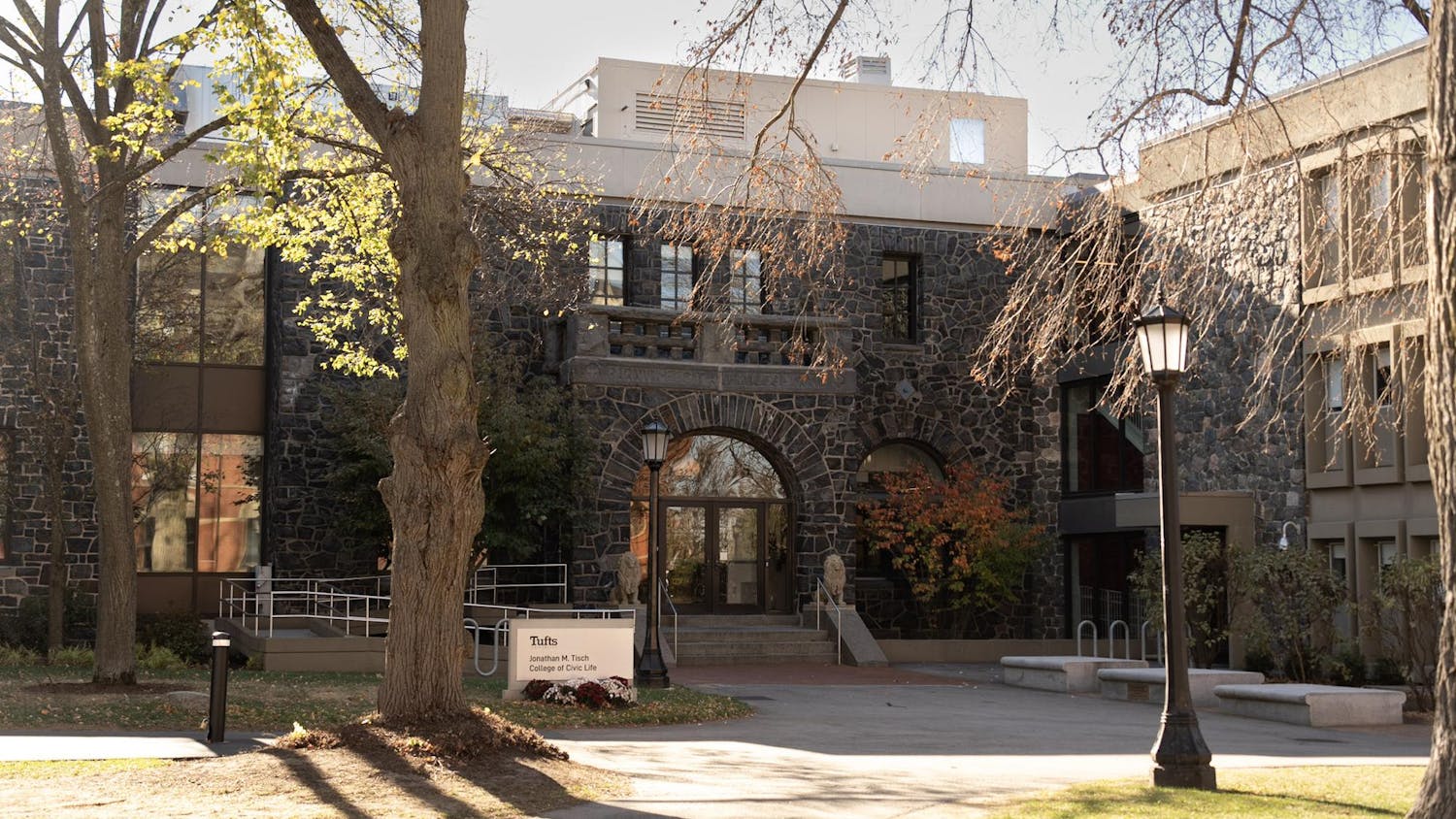Michael Sandel, the Anne T. and Robert M. Bass Professor of Government at Harvard University, yesterday evening entertained an over−capacity Tufts crowd with a discussion of the meaning of justice in society.
Sandel, the author of "Justice: What's the Right Thing to Do?" (2009), also teaches Justice, one of the most popular courses at Harvard. He delivered this semester's Richard E. Snyder President's Lecture at the Cabot Auditorium.
University President Lawrence Bacow, in introducing Sandel before the lecture, called him "one of the pre−eminent political philosophers of our time."
"He asks us to think really, really critically about really, really deep questions," Bacow said. "Humanistic principles and values are central to who we are as a society and how we think about public policy, and to be an informed citizen, we must deeply engage in these issues."
In the one−hour lecture, Sandel challenged the conventional wisdom that the public sphere must remain neutral and free from the influence of personal convictions.
"I think that diagnosis is mistaken," Sandel said. "I think the opposite is true — that our public discourse is impoverished because we don't engage directly enough and explicitly enough … with the deepest and the biggest moral and spiritual questions."
Sandel discussed the Aristotelian conception of justice, which he said "means giving people what they deserve."
Engaging his audience frequently for input and discussion, Sandel examined two debates on the correct form of justice — the story of disabled PGA Tour golfer Casey Martin, who took his fight to use a golf cart at tour events to the U.S. Supreme Court, and the political debate over gay marriage. He connected those stories to a broader discussion of moral issues.
"The conventional wisdom in liberal societies like ours is that, given the facts of disagreement, often deep disagreement, about moral and spiritual questions, we should try to decide questions of justice and rights and law in a way that is neutral or avoids underlying moral contradictions," Sandel said.
But those underlying moral questions are unavoidable and must be dealt with in any kind of discourse, he said.
"We need to develop the habit of engaging with rather than ignoring … moral and spiritual ideas," Sandel said.
--
by Matt Repka





